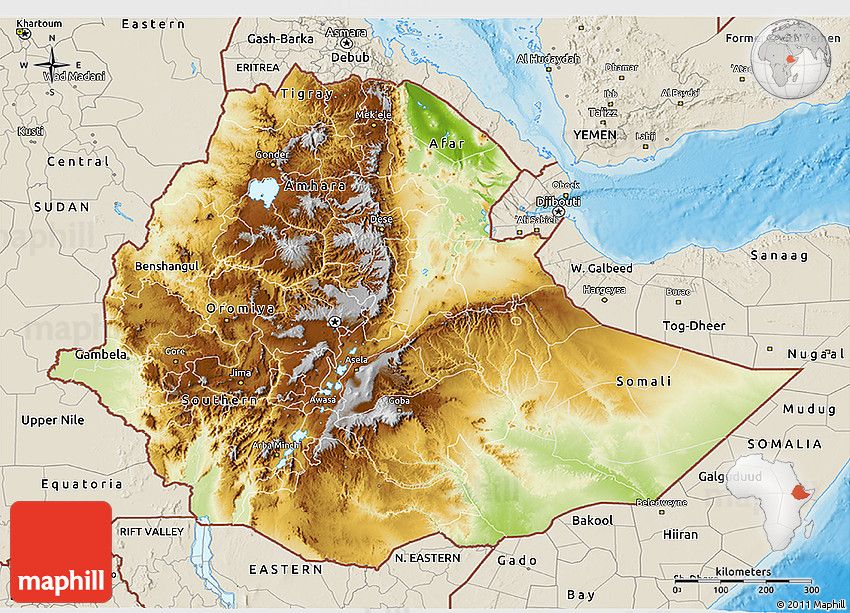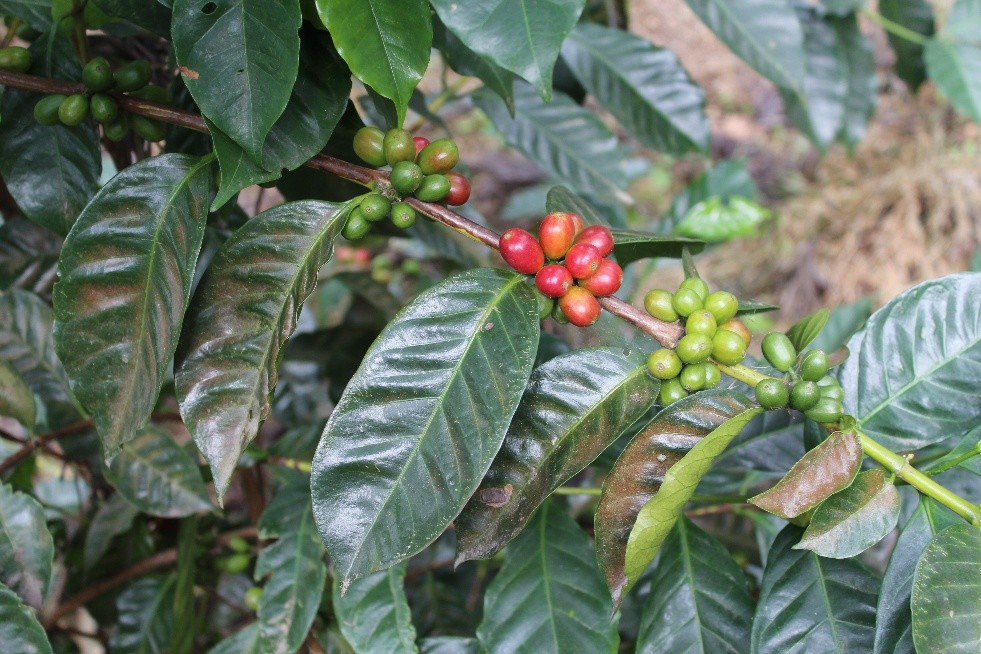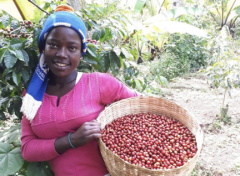The advantage of planting coffee beans? kaffa discovered coffee for the first time
Ethiopia is known for its diverse topography, ranging from about 100m below sea level in the Danakir depression to 4600 m above sea level in the Semian Mountains. It has a variety of geographical subregions, from the dry sandy deserts of the far east to the dense tropical jungles of the southwest. It has amazing special terrain. It consists of mountains, plateaus and valleys between these mountains. In the same area, different topography can be found, resulting in different ecology.

Ethiopia has breathtaking scenery and dramatic contrasts, from the towering Simeon Mountains on the roof of Africa to the depth of the Danakir depression, the lowest and hottest on earth. You will find the cloud forest in the biosphere reserve-the only home of many wild coffee varieties-active volcanoes, hot springs, cool underground caves, rugged canyons, spectacular waterfalls, rivers and sparkling lakes. Ethiopia is the fourth largest biodiversity area on earth, and you can see plants and animals that cannot be found anywhere else.
It has a rich variety of coffee and its different origins. Due to the country's geography (altitude, soil, temperature, rainfall, topography, ecology), genotype and cultural diversity, Ethiopian coffee is rich in original flavor and aroma. Coffee has been grown in the forests of the highlands of southwestern Ethiopia for thousands of years. The word coffee comes from Kaffa, the name of the place where coffee was first found in the highlands of southwestern Ethiopia. As we all know, it is the first Arabica coffee exporter in Africa and is currently the fifth largest coffee producer in the world.

Ethiopia has suitable altitude, temperature, rainfall, soil type and its PH value, making it an ideal environment for growing coffee. Ethiopia is the birthplace of Arabica coffee and has a diverse genetic base. Ethiopia produces a unique range of Arabica coffee and has great potential to sell large quantities of boutique coffee. Ethiopian coffee produces hard coffee beans with strong flavor and aroma. Fruit flavor is common in all regions, but the specific fruit characteristics vary from region to region. Berry spices are relatively common, as are citrus and chocolate. Basically, Ethiopian coffee is produced organically, with low output and the highest cup quality.
Important Notice :
前街咖啡 FrontStreet Coffee has moved to new addredd:
FrontStreet Coffee Address: 315,Donghua East Road,GuangZhou
Tel:020 38364473
- Prev

Legend of the Origin of Coffee in Ethiopia: how do Yega Xuefei Dingding Coffee beans taste?
Many coffee lovers regard Ethiopian coffee as their favorite. In their eyes, the fruity and floral Ethiopian coffee beans are always the winners. There is no doubt that for many years, Ethiopian coffee has been the most acclaimed coffee bean in a single producing area in the world. As the world's fifth largest coffee producer, Ethiopia has mastered the art of harvesting and processing coffee beans.
- Next

Culture and flavor of Ethiopian coffee beans what is the ceremony of three rounds of coffee? How do Ethiopians drink coffee?
Coffee is not only a popular crop in Ethiopia, but also an important part of their culture. There are a lot of coffee beans from Ethiopia on the front street. Pick one and introduce it to you. This time we are going to introduce TOH champion beans from Wulaga, a sub-production area of Guji, Ethiopia. This is a native species, using the water method. The overall cleanliness is very
Related
- Detailed explanation of Jadeite planting Land in Panamanian Jadeite Manor introduction to the grading system of Jadeite competitive bidding, Red bid, Green bid and Rose Summer
- Story of Coffee planting in Brenka region of Costa Rica Stonehenge Manor anaerobic heavy honey treatment of flavor mouth
- What's on the barrel of Blue Mountain Coffee beans?
- Can American coffee also pull flowers? How to use hot American style to pull out a good-looking pattern?
- Can you make a cold extract with coffee beans? What is the right proportion for cold-extracted coffee formula?
- Indonesian PWN Gold Mandrine Coffee Origin Features Flavor How to Chong? Mandolin coffee is American.
- A brief introduction to the flavor characteristics of Brazilian yellow bourbon coffee beans
- What is the effect of different water quality on the flavor of cold-extracted coffee? What kind of water is best for brewing coffee?
- Why do you think of Rose Summer whenever you mention Panamanian coffee?
- Introduction to the characteristics of authentic blue mountain coffee bean producing areas? What is the CIB Coffee Authority in Jamaica?

